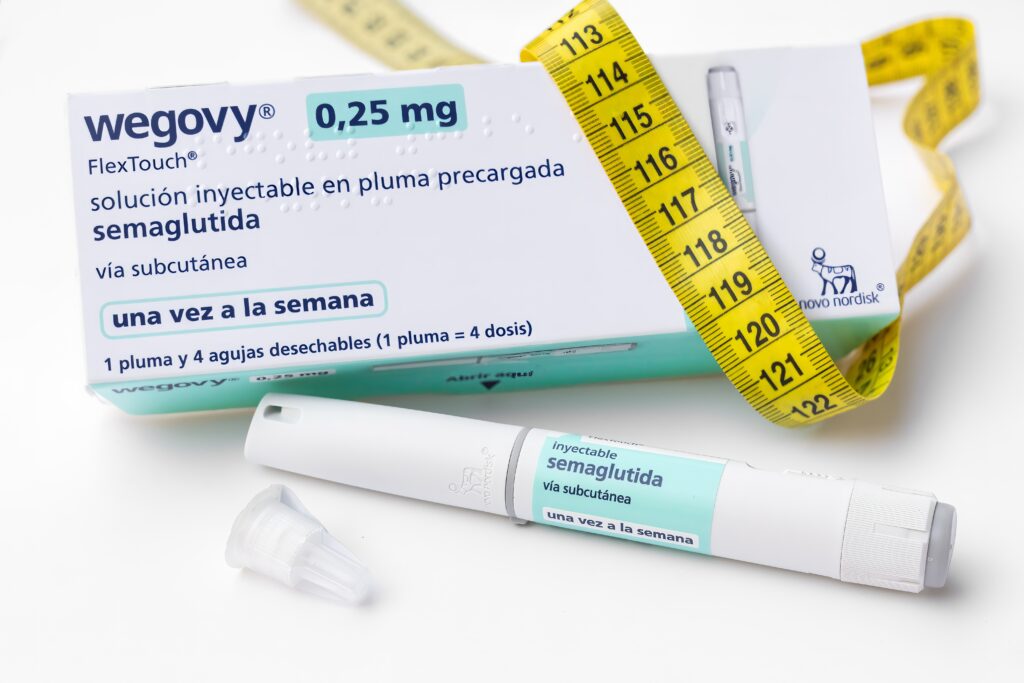Researchers from the University of Bern have discovered that GLP-1 receptor agonists, such as semaglutide (marketed as Ozempic and Wegovy), offer more than just weight loss benefits. These appetite-suppressing injections, originally developed for diabetes, have shown potential in improving mental health and overall quality of life. Presented at the European Congress on Obesity in Malaga, the study reveals that these drugs may surpass traditional diabetes treatments in enhancing psychological wellbeing, particularly in patients with severe mental health conditions.
GLP-1 Drugs and Mental Health: A Surprising Link
The study, conducted across five clinical trials, examined the effects of GLP-1 drugs on patients with severe mental illnesses like schizophrenia, bipolar disorder, and major depression. The results were promising, with participants reporting significant improvements in mood and quality of life after using these injections.
Unlike traditional antidiabetic treatments, which have limited psychological benefits, GLP-1 drugs appear to provide a broader range of positive effects. Researchers confirmed that these medications do not worsen mental health or increase the risk of psychiatric issues such as hospitalizations. Instead, both individuals with mental illnesses and those without saw improvements in their mental wellbeing.
No Increase in Psychiatric Risks
One of the key findings of the study is that GLP-1 drugs do not pose any additional risks for patients in terms of psychiatric conditions. The data showed no increase in the likelihood of new mental health issues arising or the need for hospitalization due to psychiatric problems. In fact, many patients who were treated with GLP-1 injections reported better psychological health compared to those on conventional antidiabetic drugs.
This is particularly significant given that people with severe mental disorders are more likely to struggle with obesity and its related health issues. The study offers a potential solution by addressing both mental health and weight concerns simultaneously.
GLP-1 Drugs: Potential for Anti-Anxiety and Antidepressant Effects
Dr. Sigrid Breit, the lead author of the study, suggested that GLP-1 drugs might also have antidepressant and anti-anxiety properties. She explained that the drugs’ anti-inflammatory and antioxidative effects could play a role in reducing neuroinflammation, which has been linked to mood disorders.
Breit pointed out that the benefits of these injections are especially important for individuals with severe mental illnesses. People with conditions like schizophrenia or bipolar disorder are statistically more likely to suffer from obesity, making it harder for them to manage both their physical and mental health.
Mental Health Community Responds
Dr. Ed Beveridge, a psychiatrist from the Royal College of Psychiatrists, welcomed the study’s findings. He stressed the importance of prioritizing patients with mental health conditions for access to GLP-1 medications, provided they are properly monitored. These drugs could represent a vital tool in managing both the physical and mental health challenges that many patients face.
Rachel Hastings-Caplan from Rethink Mental Illness also praised the research but highlighted the broader issue of physical health in individuals with mental illness. She noted that people with severe mental conditions tend to die an average of 20 years earlier than the general population, often due to preventable conditions like diabetes and heart disease. Hastings-Caplan pointed out the difficult balancing act faced by many patients who must choose between managing their mental illness and dealing with the weight gain and metabolic issues caused by antipsychotic drugs.
While the study shows significant promise, Hastings-Caplan cautioned that weight-loss drugs like GLP-1 injections are not a long-term solution to mental health and obesity issues. She called for increased investment in treatments that can address both mental illness and physical health without side effects. There was also a call for caution when prescribing these medications, particularly for individuals who may be at risk of developing eating disorders.
A Growing Need for Comprehensive Mental Health Care
The study also underscores the pressing need for improved mental health care, especially in the UK, where up to 15% of working-age adults live with long-term mental health or behavioral conditions. In December 2024, around 2 million people were in contact with NHS mental health services, indicating a significant demand for more accessible and effective treatment options.
The research into GLP-1 drugs highlights the growing intersection between physical and mental health. As the need for integrated care solutions increases, experts suggest that these medications could become a crucial part of holistic treatment strategies, offering both psychological and physical benefits.
